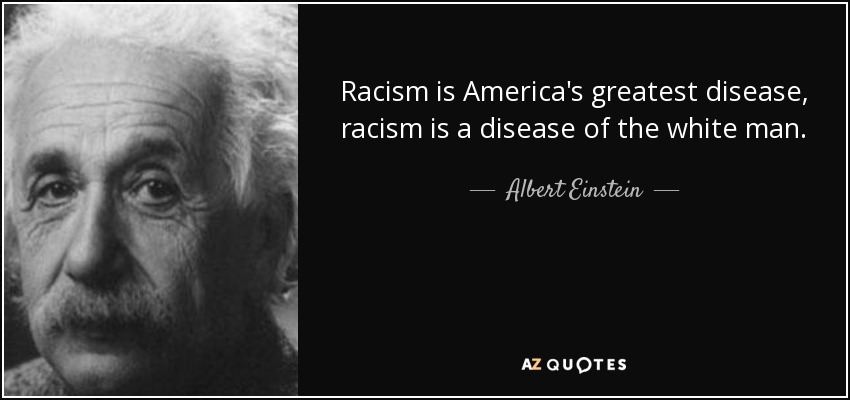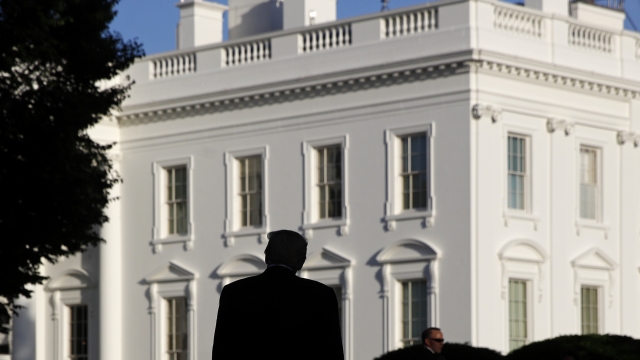Asclepias
Diamond Member
Dont be triggered. Well at least dont announce it. I may be tempted to rub it in your face.Thanks for your commitment to remaining a miscreant.Thanks for demonstrating your inability to commit logic." Sorry, but being intelligent does not make you correct. "Sorry but if you dont mind I think I will go with the more intelligent person on this one.All intelligent people agree. Racism is americas greatest disease and its a disease of the white man.Actually they were. That's why the 3/5's compromise was written in the constitution.The institution and concepts America was founded on are not racist, but keep convincing yourself that I said something I didn't say.Sure. I'll point it out.Once again, you fail to point out how I am backpedaling.Yes you are back pedaling. Just calling it to your attention.No I'm not." far less racist "Racism did not end on any of those dates.You show us the date that racism actually ended in America and peer reviewed evidence of it's elimination.Actually we have disproved every claim you have made. You're dreadfully ignorant.
I would LOOOOVE to see that.
Dates. And sure.
April 12, 1861 - The Civil War begins with the
Confederate bombardment of Fort Sumter. South Carolina.
January 1, 1863 - Abraham Lincoln issues Proclamation 95, The Emancipation Proclamation
April 9, 1865 - Robert E. Lee surrenders at Appomattox Court House
May 5, 1865 - Jefferson Davis dissolves the Confederacy in Washington, Georgia
May 10, 1865 - Jefferson Davis is captured by Union troops
April 9, 1866 - The Civil Rights Act of 1866 is passed by congress, but was not enforced due to lack of constitutional power by congress to enforce it.
August 20, 1866 - President Andrew Johnson declares an official end to the Civil War
July 9, 1868 - Ratification of the 14th Amendment
February 3, 1870 - Ratification of the 15th Amendment, opened the way for the Civil Rights Act of 1866 to be legally enforced
May 31, 1870 - Ulysses S. Grant signs the Enforcement Act of 1870, subsequently enforcing the CRA of 1866
April 3, 1944 - In Smith v. Allwright, the United States Supreme Court ruled that the "White primary," which excluded blacks from voting, was unconstitutional.
May 3, 1948 - In Shelley v. Kraemer, the United States Supreme Court ruled that lower courts could not enforce restrictive housing covenants.
July 26, 1948 - President Harry S. Truman signed Executive Order 9981, which stated, "It is hereby declared to be the policy of the President that there shall be equality of treatment and opportunity for all persons in the armed services without regard to race, color, religion, or national origin."
May 17, 1954 - In Brown v. Board of Education of Topeka, Kansas, the United States Supreme Court ruled unanimously that "separate educational facilities are inherently unequal" and that "the plaintiffs and others similarly situated… are … deprived of the equal protection of the laws guaranteed by the Fourteenth Amendment." The decision outlawed segregation in all public schools in the United States.
September 25, 1957 - President Dwight D. Eisenhower ordered federal troops into Little Rock, Arkansas, after unsuccessfully trying to persuade Arkansas Governor Orval Faubus to give up his efforts to block desegregation at Central High. Faubus and a mob of whites were forced to allow nine African American children to attend school on this day.
May 6, 1960 - President Dwight D. Eisenhower signed the Civil Rights Act of 1960, which prohibited intimidation of black voters and gave judges the power to appoint referees to oversee voter registration.
March 6, 1961 - President John F. Kennedy issued Executive Order 10925, which created the President's Committee on Equal Employment Opportunity and mandated that projects financed with federal funds "take affirmative action" to ensure that hiring and employment practices are free of racial bias.
January 23, 1964 - The 24th Amendment is ratified, abolishing the poll tax, which had been instituted in southern states after Reconstruction to make it difficult for poor blacks to vote.
July 2, 1964 - President Lyndon Johnson signs the Civil Rights Act
June 4, 1965 - In a speech to the graduating class at Howard University, President Lyndon B. Johnson frames the philosophy underlying affirmative action, making the assertion that civil rights laws alone were not enough to remedy the effects of past discrimination.
August 6, 1965 - President Lyndon Johnson signs the Voting Rights Act of 1965
June 12, 1967 - Loving v. Virginia, the United States Supreme Court rules that prohibiting interracial marriages was unconstitutional.
August 30, 1967 - Thurgood Marshall becomes the first African American to serve as Associate Justice of the United States Supreme Court.
April 11, 1968 - President Lyndon B. Johnson signs the Fair Housing Act, prohibiting racial discrimination in the sale, rental, and financing of most housing units in the country.
April 20, 1971 - The United States Supreme Court, in Swann v. Charlotte-Mecklenburg Board of Education, upholds busing as a legitimate means for achieving the integration of public schools.
Want more?
I can give you more. Or you can bow out. Gracefully.
Lincoln signed words on a piece of paper but were those words actually honored?
Not really.
At the time of "emancipation" 80 percent of Americas GNP was tied to slavery. America, not just the south. Blacks got none of the money. In January of 1865, Special Field Order 15 was issued. Special Field Orders No. 15 - Wikipedia In July 1865, Circular 13, Resource Sheet #7 was issued by General Howard which fully authorized the lease of 40 acres of land to the newly freed slaves. As a result of this action 40,000 former slaves began work on several hundred thousand acres of land.
President Andrew Johnson killed that by his doing so removed those 40,000 blacks off that land and destroyed any income they could make. Meanwhile Johnson advocated for the homestead act and wanted to take plantation land and distribute it to whites without money.
Johnson pardoned most of the confederate leaders and they regained their prior positions of state leadership. By doing this, Johnson unleashed a reign of terror on blacks that really was nothing short of attempted ethnic cleansing. Blacks were beaten, scalped, killed, set on fire with their bodies left in the streets to rot.
A representative from the Johnson administration traveled the south and reported seeing black women scalped, or had their ears cut off, thrown into rivers and drowned. Black men and boys were clubbed, beaten, shot, some chained on trees and burned to death. State to state this man witnessed the stench of dead decomposing black bodies hanging from tree limbs, lying in ditches, and piled up on the roadways.
But blacks were free, right?
Three months after Sherman issued his Field Orders, No. 15, the U.S. Congress created the Freedmen's Bureau for the purpose of ensuring the welfare of millions of slaves being freed by the war.
One task of the Freedmen's Bureau was to be the management of lands confiscated from those who had rebelled against the United States. The intent of Congress, led by the Radical Republicans, was to break up the plantations and redistribute the land so former slaves could have their own small farms.
Andrew Johnson became president following the assassination of Abraham Lincoln in April 1865. And Johnson, on May 28, 1865, issued a proclamation of pardon and amnesty to citizens in the South who would take an oath of allegiance.
As part of the pardon process, lands confiscated during the war would be returned to white landowners. So while the Radical Republicans had fully intended for there to be a massive redistribution of land from former slave owners to former slaves under Reconstruction, Johnson's policy effectively thwarted that.
And by late 1865 the policy of granting the coastal lands in Georgia to freed slaves had run into serious roadblocks. An article in the New York Times on December 20, 1865 described the situation: the former owners of the land were demanding its return, and the policy of President Andrew Johnson was to give the land back to them.
It has been estimated that approximately 40,000 former slaves received grants of land under Sherman's order. But the land was taken away from them.
Sharecropping Became the Reality for Freed Slaves
Denied the opportunity to own their own small farms, most former slaves were forced to live under the system of sharecropping.
Life as a sharecropper generally meant living in poverty. And sharecropping would have been a bitter disappointment to people who once believed they could become independent farmers.
Sharecropping was a system of agriculture instituted in the American South during the period of Reconstruction after the Civil War. It essentially replaced the plantation system which had relied on slave labor and effectively created a new system of bondage.
Under the system of sharecropping, a poor farmer who did not own land would work a plot belonging to a landowner. The farmer would receive a share of the harvest as payment.
So while the former slave was technically free, he would still find himself bound to the land, which was often the very same land he had farmed while enslaved. And in practice, the newly freed slave faced a life of extremely limited economic opportunity.
Generally speaking, sharecropping doomed freed slaves to a life of poverty. And the system of sharecropping, in actual practice, doomed generations of American in the South to an impoverished existence in an economically stunted region.
Beginning of the Sharecropping System
Following the elimination of slavery, the plantation system in the South could no longer exist. Landowners, such as cotton planters who had owned vast plantations, had to face a new economic reality. They may have owned vast amounts of land, but they did not have the labor to work it, and they did not have the money to hire farm workers.
The millions of freed slaves also had to face a new way of life. Though freed from bondage, they had to cope with numerous problems in the post-slavery economy.
Many freed slaves were illiterate, and all they knew was farm work. And they were unfamiliar with the concept of working for wages.
Indeed, with freedom, many former slaves aspired to become independent farmers owning land. And such aspirations were fueled by rumors that the U.S. government would help them get a start as farmers with a promise of "forty acres and a mule."
In reality, former slaves were seldom able to establish themselves as independent farmers. And as plantation owners broke up their estates into smaller farms, many former slaves became sharecroppers on the land of their former masters.
Yeah, figures you aren't satisfied. Look at you living your past as if it were your present. Time to snap back to reality pal. You need to understand America is a far less racist country than you think it is.
That wasnt your original claim. Now youre back pedaling.
You are putting words in my mouth. Again. Like I said even OldLady got what I was trying to say. You are too dense to get that.
You absolutely 100 percent cannot be helped.
You said to never tell you that america is racist. Then you said....
"America is a far less racist"
Youre back pedaling from your original position and its ok. You looked like a fool for saying it in the first place.
Then we have this:

Naturalization Act of 1790 - Wikipedia
en.wikipedia.org
Lol. "Disease of the white man."
Only idiots like you think it is purely confined to white people.

Einstein should have stuck to physics. Being unaware that racism was practiced by many races and many civilizations of the past. Not just white men and white civilization.
Sorry, but being intelligent does not make you correct.
By that token being a idiot like you means youre always wrong.
Triggered.



